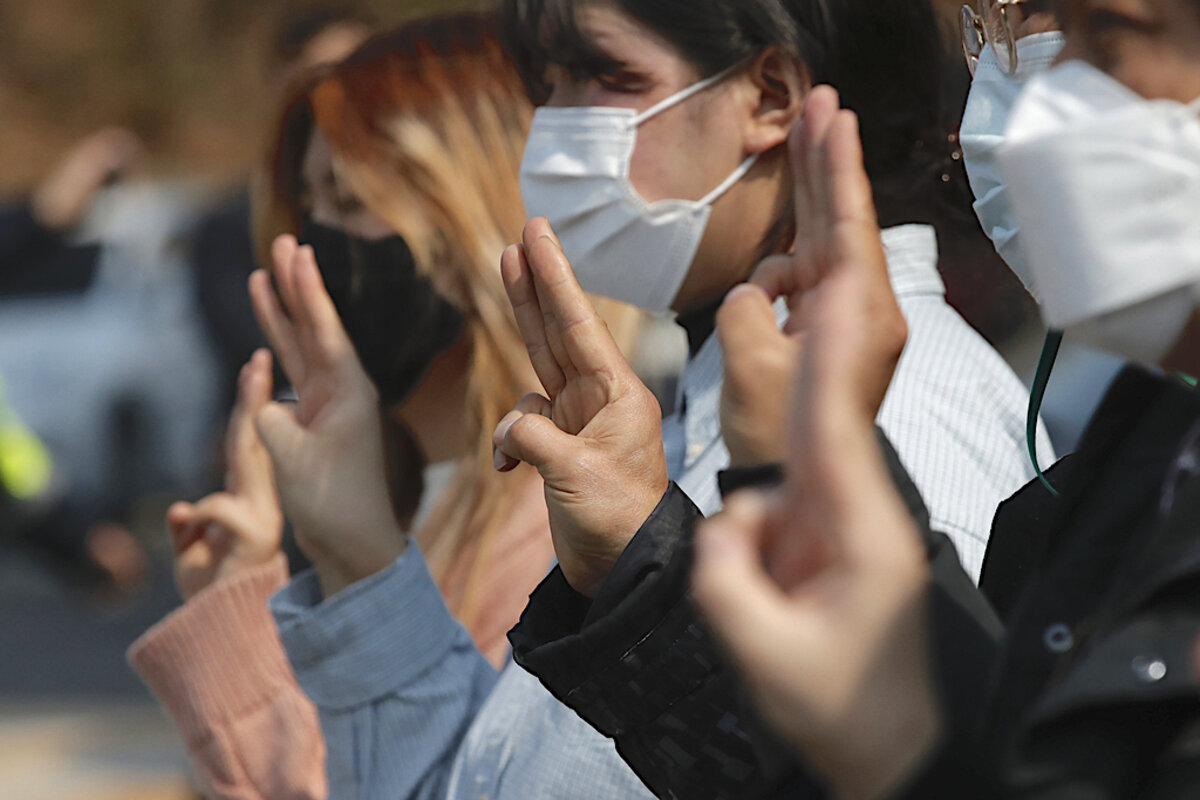The resumption of U.S. aid to Palestinians marks a return, the Biden administration says, to an intersection of American values and interests. Does that provide a path to peace someday?
Monitor Daily Podcast
- Follow us:
- Apple Podcasts
- Spotify
- RSS Feed
- Download
 Peter Grier
Peter Grier
When he graduated from high school in May 1926, Ernest E. Evans wanted to attend the U.S. Naval Academy and become a Marine. But he was of Cherokee and Creek descent and in the late 1920s Annapolis admitted few Native Americans. Ernest was from the dusty state of Oklahoma, besides.
So he signed up for the National Guard, then transferred into the Navy as an enlisted man. Amazingly he won an academy appointment in a fleet competition, and graduated in the class of 1931. He never became a Marine. But he rose through the Navy’s ranks as the world plunged into war. In 1943 he was awarded command of a brand-new destroyer then outfitting in Seattle: the USS Johnston.
The Navy recently announced that a submersible from a private expedition has found Commander Evans’ ship. It lies 4 miles beneath the Pacific – the deepest shipwreck ever recorded.
On Oct. 25, 1944, the Johnston confronted a huge Japanese force looming out of the mist of the Philippine Sea. It threatened supply lines for a key U.S. amphibious landing. Evans didn’t hesitate. He drove the Johnston right at them, dodging to draw fire and let other American ships escape.
The strategy worked – but at high cost. Eventually the Johnston went down. Evans was one of the casualties.
He was posthumously awarded the Medal of Honor in 1945 – the first Native American from the Navy to win the nation’s highest military honor. Some experts rank the Johnston’s charge as the bravest action ever by a U.S. Navy surface ship.










